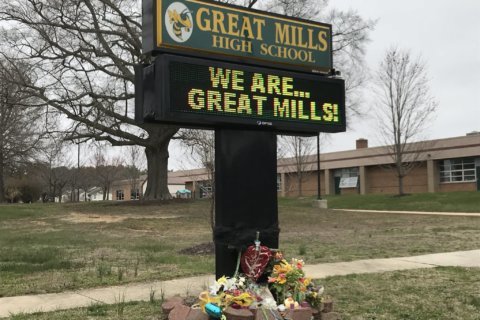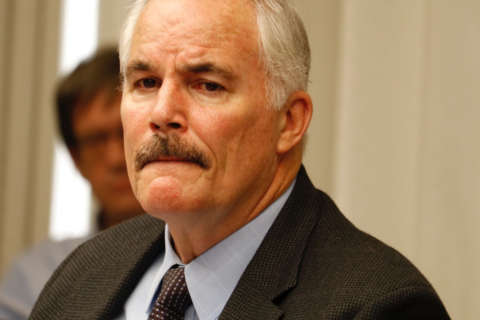ALEXANDRIA, Va. — First responders, school officials and a survivor of the shooting at Virginia Tech in 2007, gathered in Northern Virginia at a conference on prevention and recovery after incidents of violence in schools.
Ed Clarke, executive director of the Maryland Center for School Safety, said the daylong event allows school officials and first responders from Maryland and Virginia to share their experience.
“We have the opportunity to reflect on these past tragic incidents, and take best practices forward to share with committed school safety professionals here so we can be better prepared for the next event,” Clarke said.
Brian Moran, the secretary of public safety and homeland security for Virginia, said the interstate exchange of information and training is beneficial.
“It’s important for us to exchange best practices and adopt preventive measures that are effective,” Moran said.
“Kids should be able to go to school, learn, enjoy and be safe,” he said.
Scott Blundell, supervisor of security and emergency management with Frederick County Schools, talked about the case of a teenager at Catoctin High school who planned an attack, but who was intercepted after her family alerted the school.
Blundell said it’s a case that shows the critical need for information-sharing between families, schools and law enforcement.
“Folks communicated with each other and shared what needed to be shared,” he said.
Under a bill that just passed in Maryland’s legislative session, new standards for school resource officers are being drafted.
Blundell said the job is a demanding one, and officers play many roles.
“They are the criminal enforcer, they are that support individual that provides guidance to the administrator and staff of that school, and they can be counselors, where they’re just helping that student get through a difficult day,” he said.
Also speaking at the conference was Kristina Anderson, executive director of the Koshka Foundation for Safe Schools — and a survivor of the 2007 shootings at Virginia Tech. Anderson was asked what she would tell the students at Great Mills High school, where a student shot and killed a fellow classmate, before taking his own life.
Anderson said it was important that survivors — including those who didn’t witness the event but attend the school, try to remember that the world is still good.
“At this moment, it’s OK to pull back and focus on what’s important to you,” Anderson said.
But she also advised that when they’re ready — students should reach out to each other, their families and to their school community.
“Reach out, tell them that you love them. Thank your teachers, thank your first responders,” she added.







